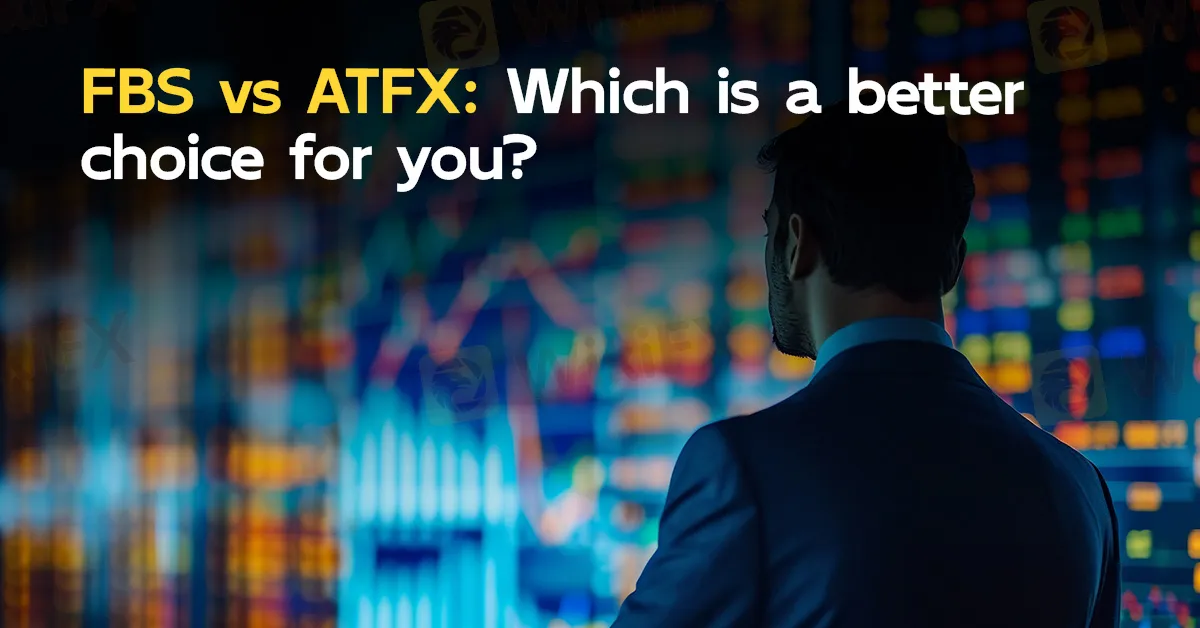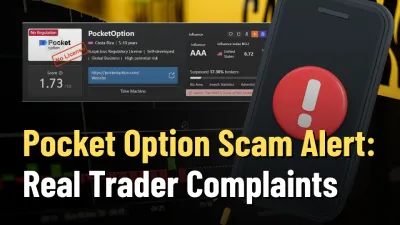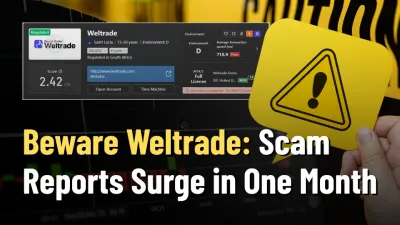Pocket Option Scam Alert: Real Trader Complaints
Pocket Option scam alert — real traders report blocked withdrawals, fake KYC, slippage, and sudden bans after profits. Read multiple 2025 complaints before you deposit.
简体中文
繁體中文
English
Pусский
日本語
ภาษาไทย
Tiếng Việt
Bahasa Indonesia
Español
हिन्दी
Filippiiniläinen
Français
Deutsch
Português
Türkçe
한국어
العربية
Abstract:Choosing the right broker can significantly impact your trading experience in the dynamic world of online trading. Today, we compare two prominent brokers, FBS and ATFX, using four key dimensions: Rating, Basic Information, Benchmark, and Account Information.

Introduction
choosing the right broker can significantly impact your trading experience in the dynamic world of online trading. Today, we compare two prominent brokers, FBS and ATFX, using four key dimensions: Rating, Basic Information, Benchmark, and Account Information.
Which broker is more reliable?
In the world of finance, competition is fierce. Two major players in the realm of brokerage services, FBS, and ATFX, have made significant strides in recent years. Lets delve into a comparative analysis of these brokers through the lens of WikiFX, considering factors such as reliability, credibility, transaction costs, safety, and trading platform quality. rating, basic information, benchmark, account information, and relevant information.

On the WikiFX platform, you can check the detail page of certain brokers, for example, if you search “FBS”, you can click the “+” button (shown above). It will allow you to compare the broker you selected with other brokers. You can compare up to 5 brokers at the same time.

The broker comparison section of WikiFX allows users to analyze different brokers virtually.
Safety
WikiFX has given both brokers a pretty decent score, which means they are relatively reliable. Safety is paramount in online trading, and regulatory compliance plays a pivotal role in ensuring customer protection. FBS regulation by ASIC, CYSEC, and FSC reflects a commitment to stringent regulatory standards across multiple jurisdictions. ATFX, regulated by ASIC, CYSEC, FCA, and SCA, similarly upholds rigorous compliance measures to safeguard client funds and market integrity. Traders can find reassurance in the brokers' adherence to regulatory requirements, minimizing the risk of malpractice or financial loss.

Regarding the basic information, both brokers have a long history of trading experience.



Transaction Costs and Expenses
FBS excels in several benchmark criteria, including spreads, leverage options, and execution speed. The broker offers competitive spreads starting from 0.5 pips and leverage up to 1:2000, catering to both novice and experienced traders. The fast execution speeds further enhance the trading experience.
ATFX also performs well in benchmark criteria. It offers spreads starting from 0.6 pips and leverages up to 1:400. Despite this, ATFX maintains a reputation for reliable execution and solid trading conditions.
When it comes to transaction costs and expenses, traders often seek the most cost-effective options. Both brokers may offer competitive pricing structures. They similarly strive to provide transparent and affordable transaction costs. Traders must carefully evaluate the fee structures and spreads offered by each broker to determine which aligns best with their trading strategies and financial goals.
Trading Platform Quality
The trading platform serves as the gateway to the financial markets, and its reliability and functionality are crucial for traders' success. FBS and ATFX both offer robust trading platforms equipped with advanced charting tools, technical indicators, and risk management features.
Conclusion
Selecting the right broker is essential for achieving success in financial markets. Through a comparative analysis of FBS and ATFX, it becomes evident that both brokers exhibit strengths in various aspects, including regulatory compliance, transaction costs, safety, and trading platform quality. Traders are encouraged to conduct thorough research and consider their trading needs before making an informed decision. Using WikiFXs comparison tool may help you find the most suitable brokers among many brokers wisely.

Disclaimer:
The views in this article only represent the author's personal views, and do not constitute investment advice on this platform. This platform does not guarantee the accuracy, completeness and timeliness of the information in the article, and will not be liable for any loss caused by the use of or reliance on the information in the article.

Pocket Option scam alert — real traders report blocked withdrawals, fake KYC, slippage, and sudden bans after profits. Read multiple 2025 complaints before you deposit.

Weltrade scam surge in August 2025: traders report fake prices, slippage manipulation, and delayed withdrawals. Protect your funds and think twice before trading.

Discover PU Prime’s new campaign, “The Grind,” and learn how trading discipline builds long-term success. Watch and start your trading journey today!

IG boosts FCA compliance by integrating Adclear’s AI tools. Learn how automation accelerates marketing approvals and ensures regulatory accuracy.
